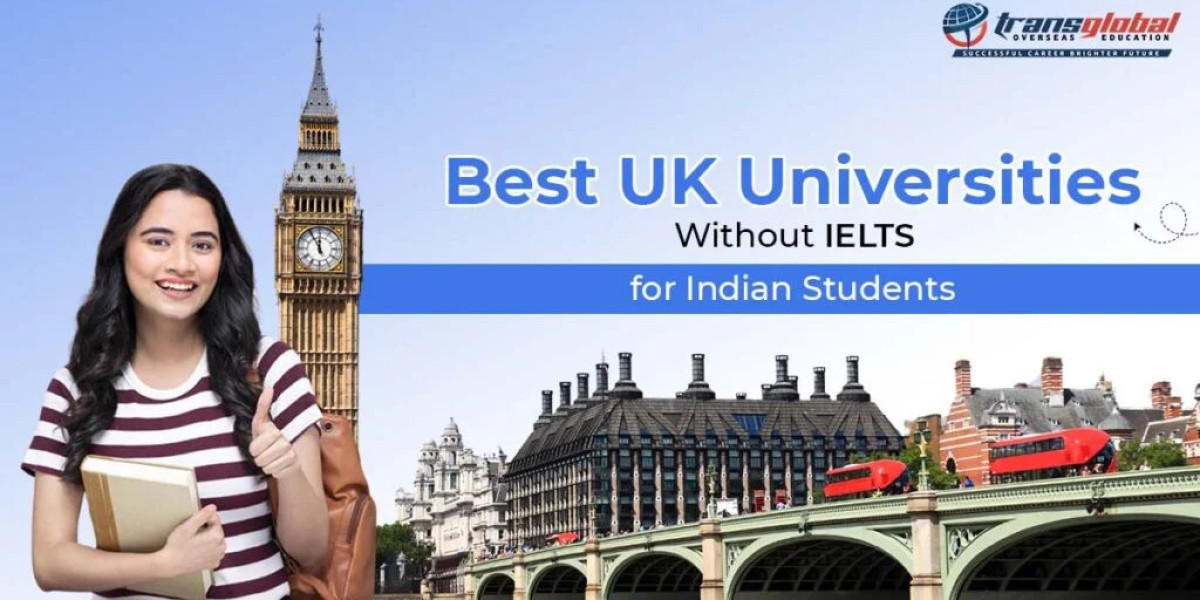The UK, a land steeped in history, academic excellence, and cultural diversity, beckons Indian students seeking a world-class education. But navigating the application process, especially the IELTS requirement, can be daunting. Fear not! This guide unveils the Best UK universities without IELTS for Indian students, along with application strategies and the entire process.
Top Universities Accepting Applications Without IELTS:
- The Illustrious Few: The University of Warwick (ranked within the top 100 globally) and the University of Bristol (a prestigious Russell Group member) stand out for their academic rigor and exemption from IELTS for students with strong academic records.
- Esteemed Choices: Aston University, University of Greenwich, University of Central Lancashire, and Swansea University offer a diverse range of programs while considering alternative English proficiency tests like PTE or Duolingo.
- Regional Gems: Explore universities like the University of Plymouth, University of Portsmouth, and Robert Gordon University, renowned for their specific programs and relaxed English language requirements (sometimes based on a specific course).
Alternative English Language Tests:
- Pearson Test of English (PTE): This computer-based test assesses all four language skills - reading, writing, listening, and speaking. It's often faster to receive results compared to IELTS.
- Duolingo English Test: This online, adaptive test is more affordable and quicker than IELTS. It focuses on real-life English use through tasks like writing emails and describing photos.
Crafting a Winning Application:
- Solid Academic Background: Stellar grades in your previous studies (preferably from a recognized Indian university) are crucial.
- Standardized Tests: If not submitting IELTS, excel in alternative tests like PTE or Duolingo. Aim for high scores to demonstrate strong English proficiency.
- Statement of Purpose (SOP): This is your chance to shine! Craft a compelling SOP that highlights your academic achievements, career goals, and reasons for choosing the specific university and program. Ensure clear, concise writing that showcases your passion and suitability for the course.
- Letters of Recommendation (LORs): Request LORs from professors who can vouch for your academic potential, work ethic, and research skills.
- Portfolio (if applicable): For creative programs like art or design, a strong portfolio showcasing your talent is vital.
The Application Process:
- University Research: Shortlist universities based on program offerings, ranking, location, and English language requirements.
- University Website: Each university has a dedicated online portal for applications. Familiarize yourself with specific deadlines, required documents, and any additional steps involved.
- Application Fee: Most universities charge an application fee. Ensure timely payment to avoid application rejection.
- Transcripts and Certificates: Request official transcripts and certificates from your previous institutions to be sent directly to the university.
- Visa Application: Once you receive an offer letter, initiate the Tier 4 student visa application process. Gather necessary documents like proof of financial support and health insurance.
Essential Documents for UK Study
While the IELTS is common, several routes exist for Indian students to study in the UK without IELTS. Here's a breakdown of key documents you'll likely need:
- University Acceptance Letter: This confirms your place in a program and often waives the IELTS requirement.
- Academic Transcripts: Stellar grades from a recognized Indian university demonstrate strong academic foundation.
- Alternative English Test Scores: If not IELTS, excel in PTE or Duolingo tests to showcase your English proficiency.
- Statement of Purpose (SOP): A well-written SOP highlighting achievements, goals, and reasons for choosing the university strengthens your application.
- Letters of Recommendation (LORs): LORs from professors endorsing your academic potential and work ethic add credibility.
- Portfolio (for specific programs): For creative fields like art or design, a strong portfolio showcasing your talent is essential.
- Visa Application Documents: Once accepted, gather documents for your Tier 4 student visa, including proof of financial support and health insurance.
Conclusion
The UK beckons with its esteemed universities, vibrant culture, and diverse experiences. This guide has equipped you with the knowledge to navigate the path to a UK education, even without the IELTS requirement. Remember, strong academic performance, a compelling application, and dedication to your chosen field will be your guiding lights.Consider seeking guidance from experienced UK study visa consultants. They can provide invaluable support throughout the application process, from university selection to visa application assistance. With their expertise, you can navigate the complexities with confidence and focus on achieving your academic aspirations.
FAQ’s
1. Which top UK universities accept students without IELTS?
The University of Warwick and University of Bristol are frontrunners, offering exceptions for students with strong academic backgrounds.
2. What alternative English tests can I take?
The Pearson Test of English (PTE) and Duolingo English Test are popular options, each with faster results (PTE) or affordability/convenience (Duolingo) compared to IELTS.
3. What are the key application documents (besides test scores)?
Stellar academic transcripts, a compelling Statement of Purpose, strong Letters of Recommendation, and a portfolio (for creative programs) are crucial.
4. How do I find universities without an IELTS requirement?
Research university websites and contact their admissions departments. Consider consulting UK study visa consultants for personalized guidance.
5. When should I begin the application process?
Start early! Research universities and prepare documents well in advance to meet application deadlines and maximize your chances of success.















